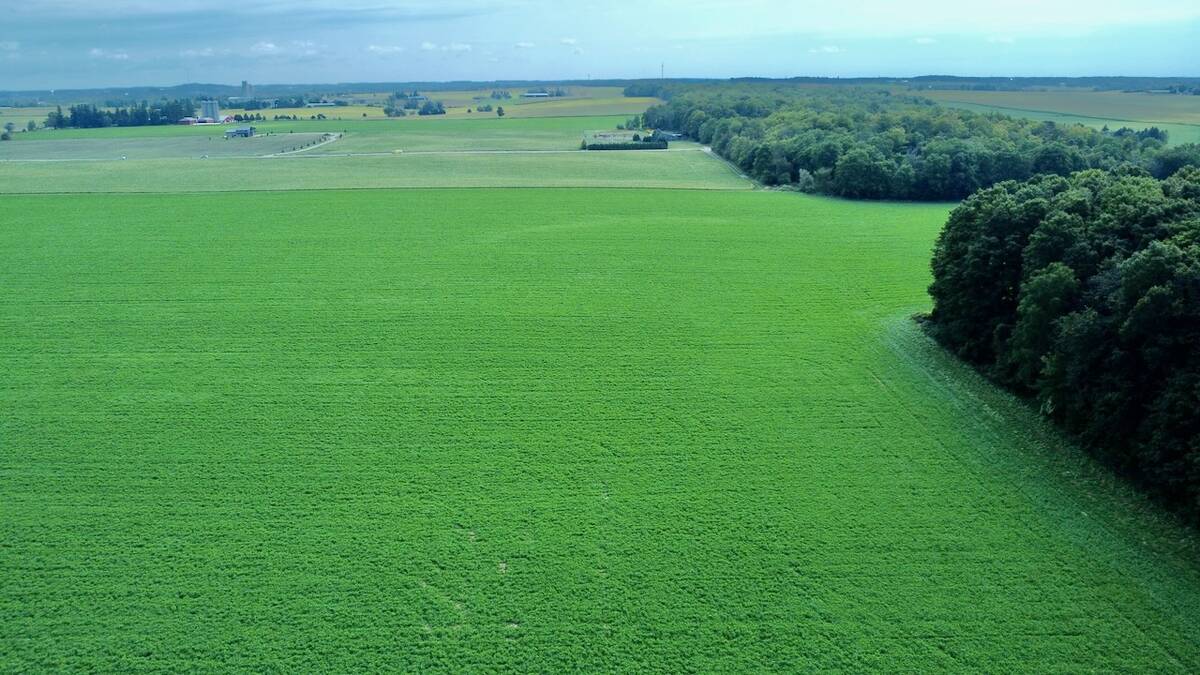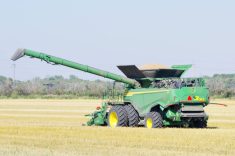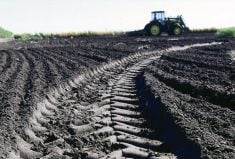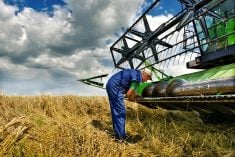While driving through parts of rural Scotland last month, a farm-related debate came on the BBC radio program my friend and I were listening to.
Since I was suffering from agriculture-news related withdrawal (it was only day four of my vacation), I immediately cranked the volume.
The question up for debate: should tractors be banned from driving the United Kingdom’s ‘A’ roads?
“This is going to be good,” my friend said with a chuckle.
‘A’ roads, for those wondering, are secondary roads in the United Kingdom that are often single-lane highways that weave their way through rural and urban communities. Sometimes they allow for two lanes of traffic in each direction, but that’s rare. Really rare.
Read Also

CANZA launches farm resilience pilot projects
CANZA, whose partners are some of the largest players in the Canadian food value chain, launched it farm resilience pilot projects on Oct. 7.
‘A’ roads are different from the motorways, which are divided highways. Tractors are not allowed on motorways.
They’re also wider than a ‘B’ road, which can be a terrifying driving experience simply given the fact the speed limit is 60 miles an hour on a windy road that could really be characterized as a lane, with convenient ‘passing’ pull-over spots since there’s not enough room for flow-through traffic.
But I digress.
The debate on the BBC had been prompted by a new report from Highways England that suggested slow-moving vehicles, notably farm equipment, be banned from ‘A’ roads in an attempt to ease congestion. Additional slip roads and other expansions were also proposed.
The report was perfect fodder for the Jeremy Vines call-in show, an afternoon staple. You see, Brittons have an opinion about nearly everything.
Especially tractor traffic.
Among urban drivers, the viewpoint was unanimous: the sooner tractors are off the ‘A’ roads, the better.
More than one person said they’d lost track of the number of times they’d been stuck in a traffic jam involving farm equipment and been late to wherever they were headed.
They never pull over, another caller complained.
At that point, my friend nodded in agreement. We had already found ourselves stuck behind a tractor on a rural ‘A’ road at least once this trip.
It didn’t pull over.
Instead, we crawled along for miles enjoying the spectacular views in front of us — both of the landscape and the adorable dog in the backseat of the car ahead.
Urban-rural divide
Farmers, however, weren’t as sympathetic to the woes of their urban counterparts.
Colin Cloud, an arable farmer from somewhere in England my friend and I had never heard of before, was incensed by the proposal.
Banning tractors from ‘A’ roads, he said, was a ridiculous idea. How else was he supposed to get to his fields — which are not connected to each other?
Farmers, Cloud said, don’t like to be on the roads, but it is a necessity if food is to continue appearing on grocery store shelves.
They also pull over. Well, at least Colin said he always pulls over.
Those argument’s didn’t satiate disgruntled city-callers, who had clearly met their wits end.
Farmers, one woman said, have plenty of ‘B’ roads they can use.
“My combine is 12 feet wide,” Colin retorted. The machine, he said, is too wide to drive down a B road. “It won’t fit.”
“Fair point,” my friend said, as he tried to navigate our little rented Volkswagon Golf around yet another narrow roundabout.
Other callers tried to suggest compromises. Perhaps farm traffic could be restricted to off-peak hours, one woman suggested, rather than be banned entirely.
That suggestion was met with mixed responses, with Cloud pointing out farmers often have limited time to get their crops planted or harvested. Farming is time-sensitive.
In the end, the segment wrapped up with little resolution, a clash between farm and city life very much still up for debate — although a poll of folks in a Glasgow bar a few hours later found there were very few folks siding with farmers.
A week later, I’m still thinking about it.
For one thing, it goes to show how Canada isn’t unique in its clashes between rural and urban residents. I know for a fact there have been debates in parts of this country about farm traffic on major thoroughfares between communities.
Here in Ontario, some communities have started pulling out roundabouts in more rural areas because farm equipment simply can’t fit through. No one wants a stuck tractor in a traffic circle. Talk about a nightmare for both farmer and commuter.
But the BBC program highlighted something broader. How do policy officials address direct clashes between rural and urban folks, where both sides have valid arguments? Can compromises truly be made that satisfy both sides?
It’s a question policy-makers grapple with every day, while wrestling with public opinion and a host of other factors. And, it’s a conundrum that’s unlikely to go away.













